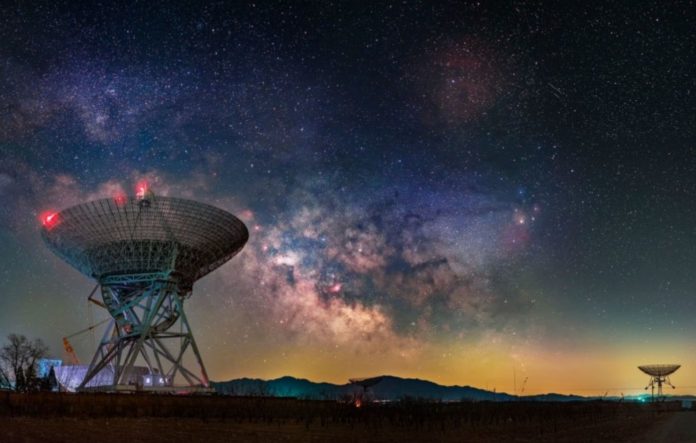Since 2015, the best estimate of the age of Earth’s magnetic field has been around 3.2 to 3.5 billion years. But now a research team has new data showing the magnetic field is far older.
Professor Desiree Roerdink, a geophysicist at the University of Bergen and a leading expert on Earth’s magnetic field, and her team of researchers say they believe the Earth’s magnetic field is at least 3.7 billion years old.
The findings may also be significant in the search for alien organisms on other planets and moons.
Study lead author Professor Desiree Roerdink says:
- Scientists in Fear of This New Predator From Red Sea Eating Native Species in Mediterranean
- Does This Mean We Stopped Being Animal and Started Being Human Due to ‘Copy Paste’ Errors?
- The One Lifestyle Choice That Could Reduce Your Heart Disease Risk By More Than 22%
- Aging: This Is What Happens Inside Your Body Right After Exercise
- Immune-Boosting Drink that Mimics Fasting to Reduce Fat – Scientists ‘Were Surprised’ By New Findings
“That is a huge time period. It essentially has implications for the way we think about how life evolved.”
Scientists usually think about life starting in deep sea, hydrothermal vents. But the biosphere – all ecosystems where it exists – is complex.
Prof Roerdink said:
“We don’t really know if it is possible that life could have developed at the same time on land.”
She added:
“But then that land has to be there.”
Once it becomes established through dynamic processes like plate tectonics, it begins to weather.
Crucial minerals and nutrients are added to the sea – a record of which is preserved in ancient rocks.
The first emergence of continental crust shows when Earth cooled and became habitable – triggering plate tectonics, ocean chemistry and biological evolution.
Earlier analyses relied on the non radioactive silvery metal strontium in rare marine carbonate. They are altered in sediments older than 3 billion years.
The study, presented at a virtual meeting of the European Geosciences Union, is based on Barite. The mineral is used for drilling oil and gas wells.
It is made through sulfate in ocean water mixing with barium from hydrothermal vents – making it ideal for reconstructing ancient environments.
Prof Roerdink explains:
“The composition of the piece of barite we pick up in the field now that has been on Earth for three and a half billion years is exactly the same as it was when it actually precipitated.
“So, in essence, it is really a great recorder to look at processes on the early Earth.”
The international team scanned six barite deposits in rock sample cores, or cratons, from three different continents. They date back around 3.2 to 3.5 billion years.
Calculating the ratio of strontium isotopes revealed the chemical weathering in the ocean began about 3.7 billion years ago.
Previously, it was believed Earth’s crust was 3.2 billion years old. Plate tectonics and a geodynamic Earth is vital for life – recycling key elements and maintaining a temperate climate.
- Scientists in Fear of This New Predator From Red Sea Eating Native Species in Mediterranean
- Does This Mean We Stopped Being Animal and Started Being Human Due to ‘Copy Paste’ Errors?
- The One Lifestyle Choice That Could Reduce Your Heart Disease Risk By More Than 22%
- Aging: This Is What Happens Inside Your Body Right After Exercise
- Immune-Boosting Drink that Mimics Fasting to Reduce Fat – Scientists ‘Were Surprised’ By New Findings
Prof Roerdink added:
“To get land, you need processes operating to form that continental crust, and form a crust that is chemically different from the oceanic crust.”
The plates are constantly moving. Volcanoes and earthquakes occur at their boundaries. Earth has four key layers the inner and outer cores, the mantle and crust.
Roughly three to 43.5 miles thick, if the planet was the size of an apple it would be as thin as the skin.
There are two types of crust – oceanic and continental crust. The former is found under the sea and is thinner and more dense than the latter.
